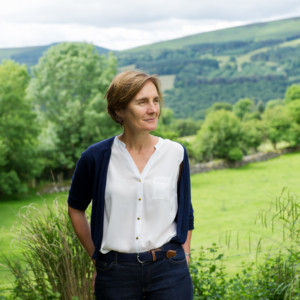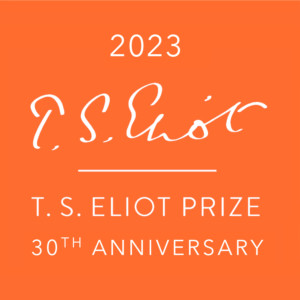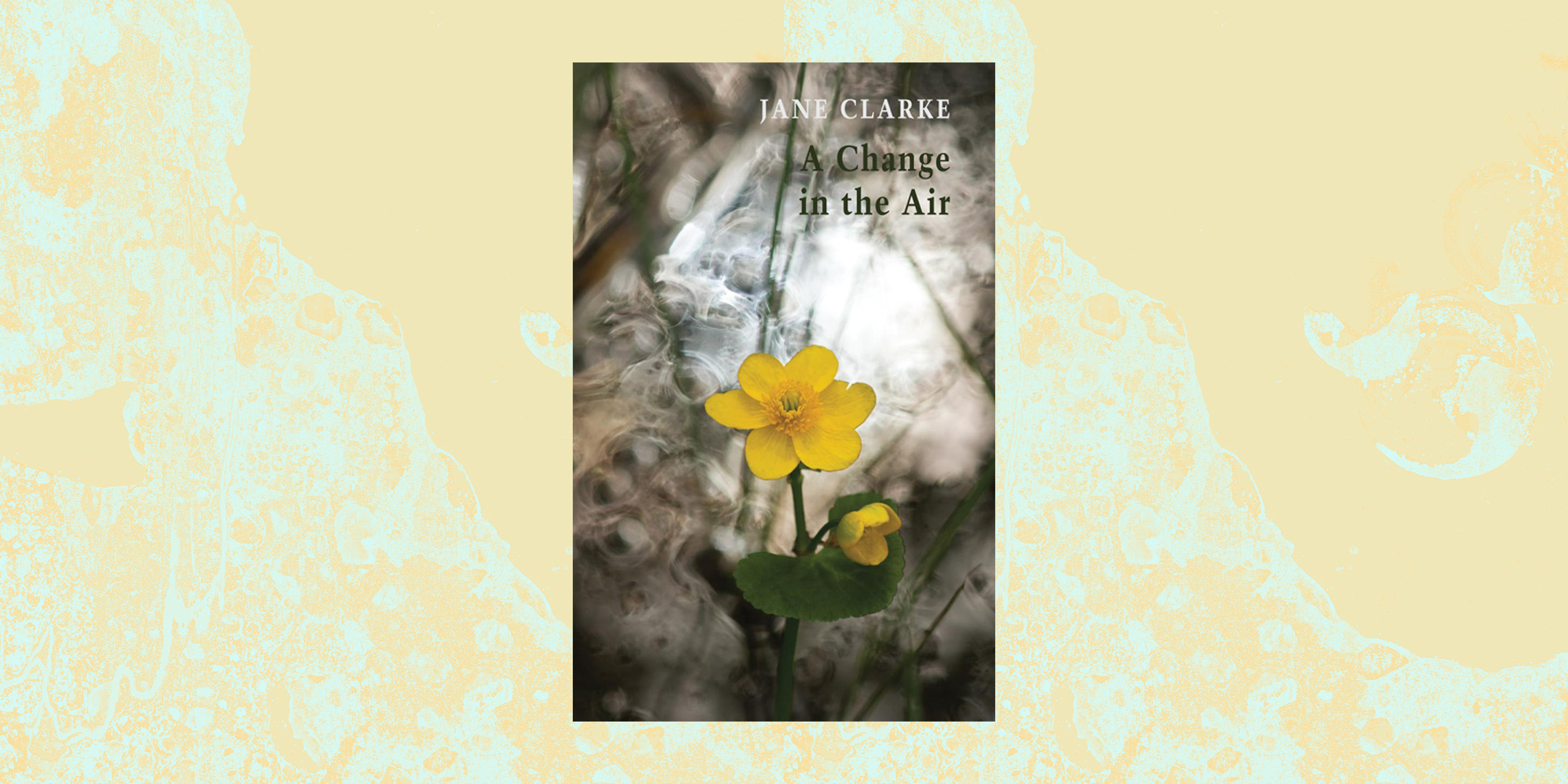Welcome to our T.S. Eliot Prize 2023 Writers’ Notes. This year, alongside the usual Readers’ Notes, the T.S. Eliot Prize and the Poetry School are collaborating on a set of Writers’ Notes for the shortlisted collections. These are educational resources for poets looking to develop their practice and learn from some of contemporary poetry’s most exciting and accomplished voices. Here’s Jane Clarke on her collection, A Change in the Air.
When I don’t know how to start or enhance a poem, I read the work of other poets. The pleasure of reading frees me to play and I believe playfulness is at the heart of writing, even when exploring the most serious concerns. By play I mean an openness to exploration and experimentation, an openness to messing around and getting it wrong. As soon as I start revising, I need my critical faculties but in the beginning it’s best to let new writing slip past the judgemental self. I have learned not to set expectations for a poem but simply to write into the unknown and see what happens. Reading Natasha Trethewey’s stunning pantoum ‘Incident’ made it possible for me to begin writing ‘Flight’ in A Change in the Air. From the opening line, ‘We tell the story every year –’, her poem helped me find a way of telling a story I had heard from my mother and other families about having to leave home due to intimidation. ‘Incident’ was the key to a poem that was locked away waiting to be written.
Since I wrote my first poem twenty years ago, walking has been central to my writing process. Getting away from the laptop, letting my mind rest and my body move, allows the unconscious to do its own work.
Since I wrote my first poem twenty years ago, walking has been central to my writing process. Getting away from the laptop, letting my mind rest and my body move, allows the unconscious to do its own work. The rhythm of walking helps me find a better word, a beginning or an ending. Sometimes I mull over writing problems as I walk, sometimes I talk out questions and doubts with my wife or friends. Often, I remind myself to practice mindful attention to what is around me. Walking, like good conversation, facilitates change: change in focus, change in perspective, change in emotional response. Bereft at the loss of our neighbour during the Covid-19 pandemic, my wife and I went for a walk on the day of his funeral. I was brought to a standstill by the sound of wind blowing through a gate between the fields where we’d meet him with his sheep. It was two months later before I began to write the poem ‘Shepherd’ but that sound stayed with me and gave me the final two lines of the poem.
The Spark
Looking back over the sequences in A Change in the Air I realise that listening to people tell their stories frequently provides the spark of inspiration for poems, probably influenced by my background as a psychotherapist. During a break from lockdown in September 2020, I had the opportunity to do a two-week writing retreat on Achill Island. While walking the coastline one afternoon, I fell into conversation with an older man who was unloading lobster pots from his currach. I asked him about the sight and smell of dead sharks that I recalled from a visit to the island as a child. He had worked in the basking shark fishery and was keen to talk about what he remembered. He spoke about how the basking sharks were caught and killed and how their oil was extracted. He spoke about their extinction from the waters around the island and their return. The next morning I sat at the old desk in the Heinrich Böll Cottage and began to write what in time became ‘At Purteen Harbour’. The inspiration, as for most poems, was multi-faceted; my memory of the dead sharks, the fisherman’s vivid stories, the sights, sounds and smells of the place where the story unfolded, the tragedy of extinction and the hope of restoration. All of that moved the poem into being.
One of the paradoxes of writing is that it depends on a regular, concentrated focus as well as play, exploration and surprise. It’s about work and it’s about pleasure.
In Service of the Poem
One of the paradoxes of writing is that it depends on a regular, concentrated focus as well as play, exploration and surprise. It’s about work and it’s about pleasure. I learned from my father and mother that hard work and pleasure can be help-mates. Mine is not the physically demanding work of their farming lives but there is a similar daily commitment to pressing forward with the tasks that gradually lead to a harvest. While drawing together the sequences for A Change in the Air I discovered that commissions had significantly supported my creative process. I used to worry that these requests would result in stilted writing but now I see that, as long as I can find an emotional resonance, the requirement to respond to a theme within a set timeframe pushes me to do good work. It is that emotional resonance that ignites my senses and intelligence and memories and somehow gets them all working together in service of the poem. My life is enriched by the unexpected diversity of where the research takes me, whether it is to see bog restoration on a mountain in Wicklow, listening to a miner talking about what it was like to work for hours underground or reading a first-hand account of life on a landlord’s estate during the famine.
I want my poems to resonate with strangers; it is in the rewriting that the poem moves beyond me, finds its own identity and takes flight.
The Edit, for the Strangers
Usually I begin the editing process as soon as I have written the first draft. I start to play with the language, images and sounds. I repeat the poem aloud again and again, trying out different line lengths, different placing of words and phrases, different stanza breaks, all for that particular combination of music and meaning. I had the good fortune to work with the Welsh poet Gillian Clarke while completing my first collection The River. Her insistence on the music of every line has guided my work ever since. Once I have a good draft, I show it to trusted poet friends for their astute and thought provoking feedback. I am grateful for their skill; I would not have developed as a poet without their consistent help and encouragement. Through the editing process, which usually takes four or five months but can take years, I try to make each poem as specific as possible to its time, place and people because that is it what gives it universality. Writing a poem is all about intimacy and distance; we need to be able to bear the intimacy that good writing requires but we also need to be able to see the poem from the distance that editing requires. I want my poems to resonate with strangers; it is in the rewriting that the poem moves beyond me, finds its own identity and takes flight.
Jane Clarke‘s A Change in the Air (Bloodaxe Books, 2023) is shortlisted for the T.S. Eliot Prize 2023. Order your copy here.

Jane Clarke is the author of three poetry collections, The River (2015), When the Tree Falls (2019) and A Change in the Air (2023) published by Bloodaxe Books, as well as two poetry pamphlets, All the Way Home, published by Smith|Doorstop (2019) and Coracle published by the Museum of Literature Ireland (2023). Her third collection A Change in the Air was shortlisted for the Forward Prize for Best Collection and is on the shortlist for the T.S. Eliot Prize 2023.


Thank you Jane for such good advice ! I take heart reading your words.